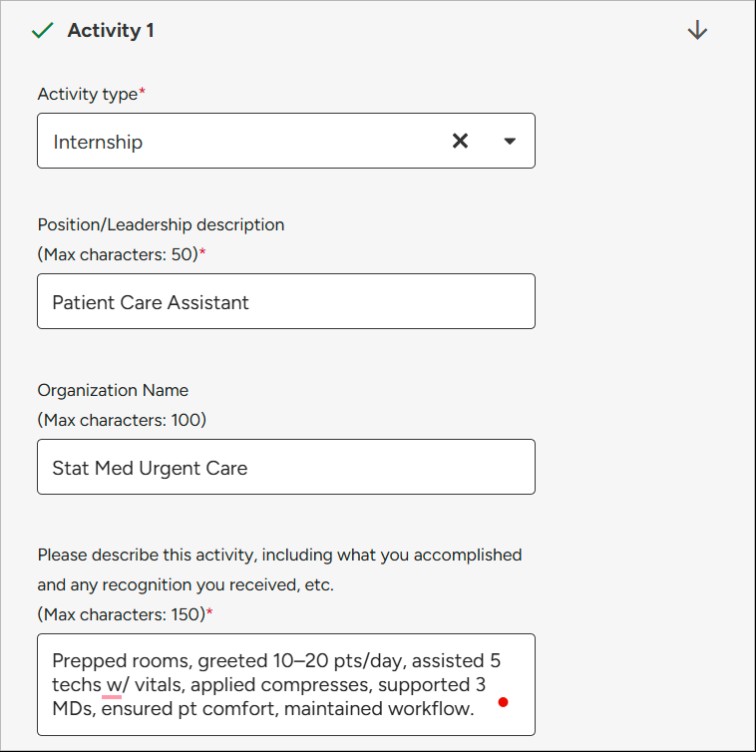3 Smart Tips for Using AI in Your Application and Essays

As tools like ChatGPT, Claude, and other AI writing assistants become increasingly accessible, more students are turning to them during the college application process. From brainstorming essay ideas to editing activity descriptions, AI can certainly offer a helping hand—but proceed with caution.
Misusing these tools can lead to serious consequences, including having your application flagged or even rejected. Here's what every applicant needs to understand before using AI in their college application journey.
#1 Every College Has Its Own AI Policy
There’s no universal rule when it comes to AI and college applications. Some schools welcome limited, ethical use—others ban it entirely. That’s why it’s your responsibility to check each college’s individual policy.
Take Brown University, for example. Brown clearly states on its admissions website that the use of AI in your application is prohibited (except for proofreading and spelling). That includes essays, activity lists, and any other written materials. Students must even certify that their submissions are free of AI assistance.

🚫 Ignoring a school’s policy—even unintentionally—can lead to disqualification.
What you should do:
- ✅ Review each school’s admissions guidelines carefully
- ✅ Search the college’s website for terms like “AI use” or “application integrity”
- ✅ If you're unsure, reach out to the admissions office for clarification
#2 Essays: Keep It Real, Keep It Yours
Your personal statement and supplemental essays are your chance to show admissions officers who you really are. Grades and test scores don’t tell your whole story—but your writing can.
It’s okay to use AI for:
- Brainstorming ideas
- Organizing your thoughts
- Catching grammar issues or awkward phrasing
But it’s not okay to let AI write your essay for you. Here's why:
AI-generated writing tends to feel vague, overly polished, and emotionally flat. It might sound technically correct—but it lacks your personality, your voice, and your story. Admissions readers can usually spot when AI has been used and you don't want to risk your chances of admission with an AI essay.
Your goal: Make a real connection. Use your essay to show your perspective, your growth, and your voice. No algorithm can do that for you.
#3 Activities List: Condense, Don’t Invent
The Common App’s activities section is notoriously tricky—short character limits, lots to say. AI can be a useful tool here if used wisely.
Use AI in the activities list to:
- Help condense long descriptions - you can write a paragraph about your impact in a certain activity and prompt an AI platform to condense the statement to be more concise
- Make the language more active and impactful
- Use it to stay within character count limits
DON'T ask AI to enhance, embellish, or invent experiences you haven’t had. That crosses the line from editing into dishonesty—and that’s a risk not worth taking.
Rule of thumb: The ideas and experiences should be 100% yours. Let AI help with tightening language, not shaping your story.

Final Take: Use AI Thoughtfully
Think of AI as a writing coach—not a ghostwriter. Used ethically, AI can help you express yourself more clearly. But if you lean on it too much, you risk losing the very thing colleges want most: you.
Pro Tip: Keep drafts of your writing. If there’s ever a question about the authenticity of your work, having a documented writing process can help you demonstrate that your work is truly your own.
Bottom Line
AI is a powerful tool, but it should never replace your own ideas, your voice, or your judgment. Colleges aren’t looking for perfection—they’re looking for personality, honesty, and heart.
Stay true to who you are. Let your story shine through.
Authenticity beats algorithms—every time.

Subscribe to the College Insider blog and receive other exclusive tips and advice when it is released.
Thank you for subscribing!
Have a great day!
Make It U College Consulting offers personalized guidance on college list building, essay strategy, testing plans, application assistance, and more.
Book a free consultation with Kris to get started - and find your path to college.